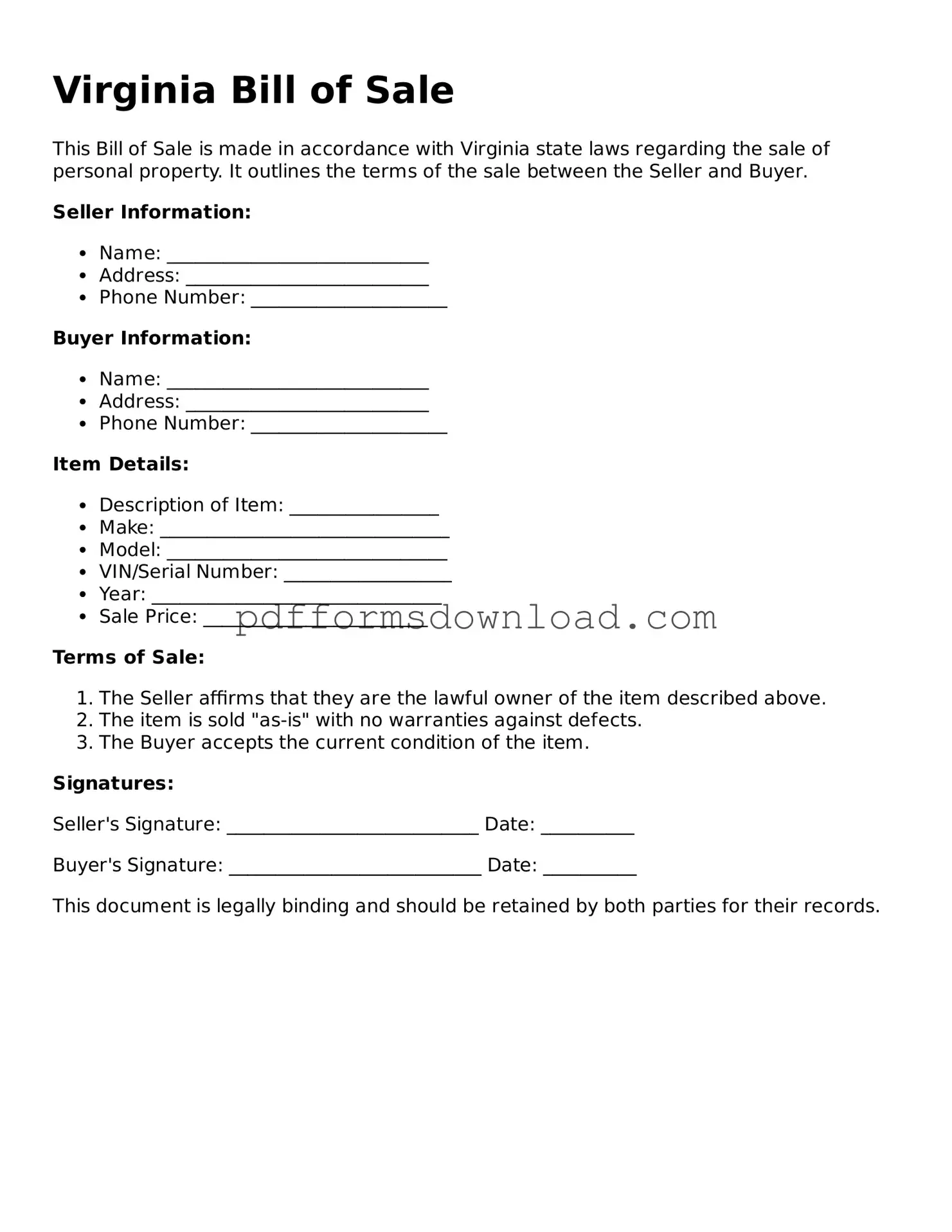Printable Virginia Bill of Sale Form
A Virginia Bill of Sale form is a legal document that facilitates the transfer of ownership of personal property from one individual to another. This form serves as proof of the transaction and outlines essential details such as the buyer, seller, and item description. To ensure a smooth transfer, it is important to fill out the form accurately; start by clicking the button below.
Make This Document Now

Printable Virginia Bill of Sale Form
Make This Document Now

Make This Document Now
or
Free PDF File
Your form is almost ready
Complete your Bill of Sale online — edit, save, and download easily.